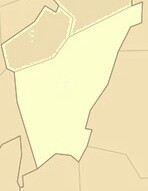| January 2009 Dera Ismail Khan bombings | |
|---|---|
| Location | Polytechnic College and Town Hall, Dera Ismail Khan, Khyber Pakhtunkhwa, Pakistan |
| Coordinates | 31°50′38.97″N70°54′45.38″E / 31.8441583°N 70.9126056°E |
| Date | 4 January 2009 26 January 2009 |
| Target | Police officers |
Attack type | Bombing, Suicide attack, Shooting |
| Weapons | Hand Grenade, Explosive belt, Planted bomb |
| Deaths | 16 |
| Injured | 52 |
| Victims | Police and Journalists |
| Defender | KPK Police |
January 2009 Dera Ismail Khan bombings involved two incidents in Dera Ismail Khan. The first occurred on 4 January in front of Polytechnic College, killing ten people, including four policemen and two journalists, and injuring 28. [1] The other occurred when a bomb planted on motorcycle exploded on 26 January near town hall, killing 6 people and injuring 24. [2]

